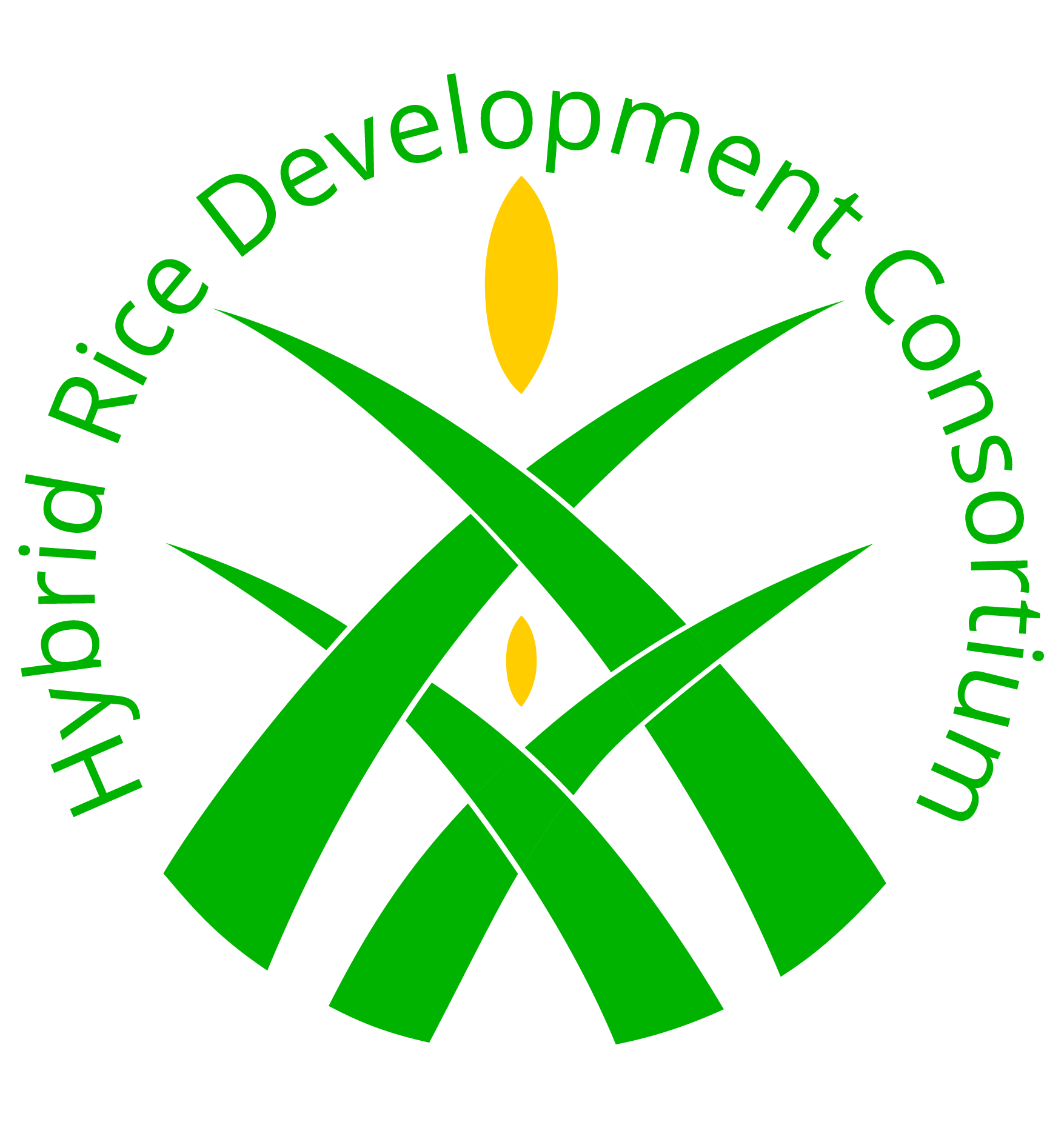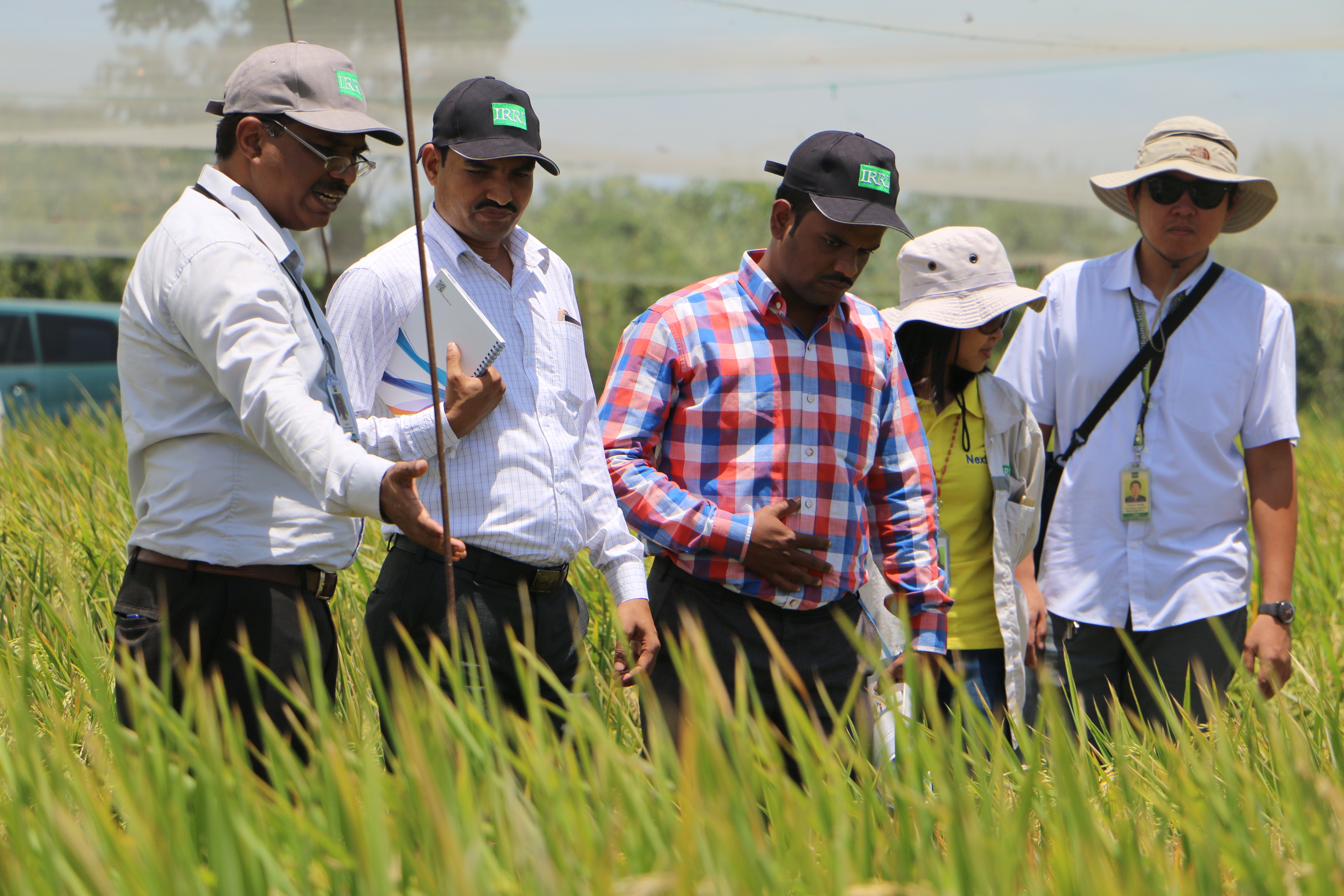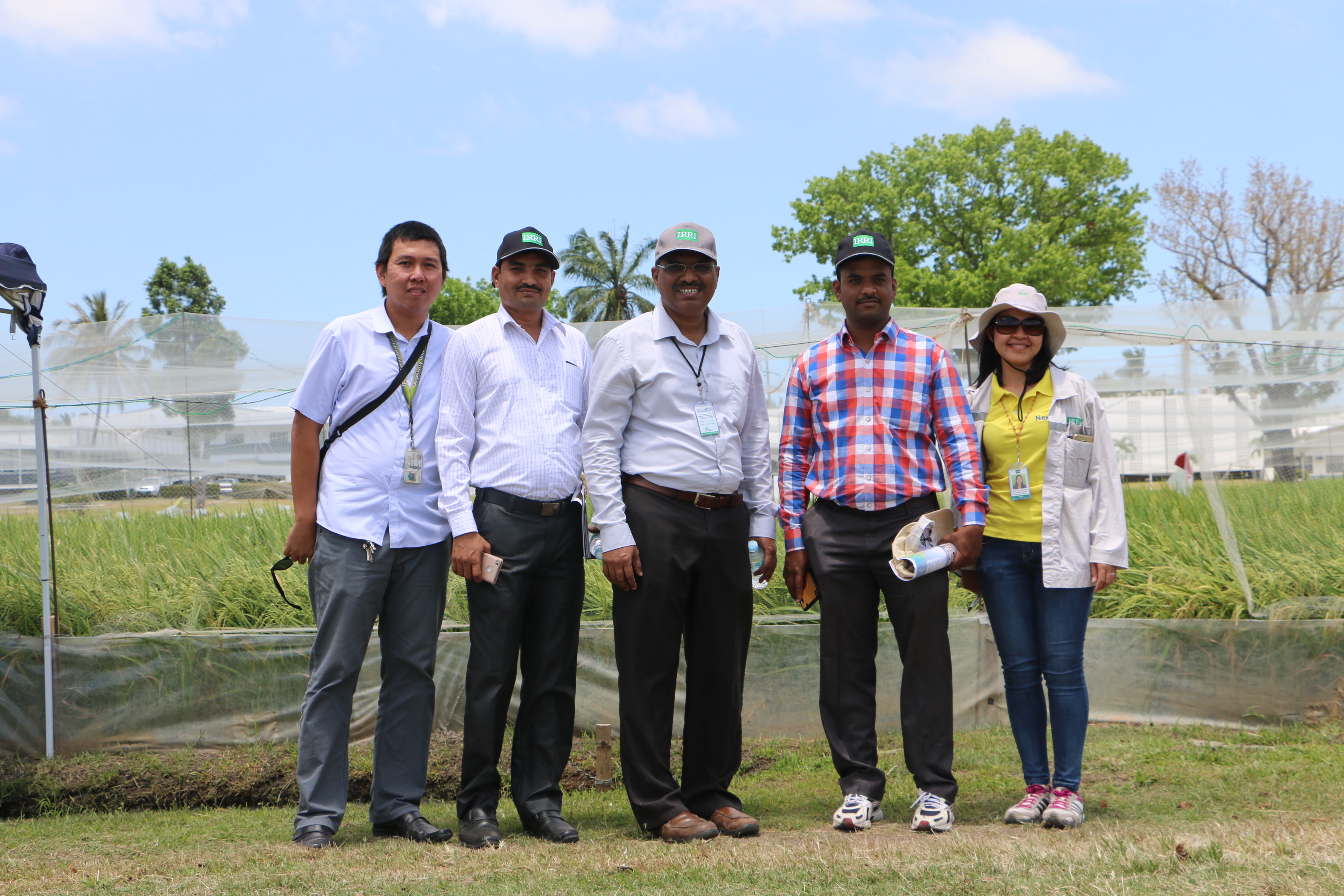LOS BAÑOS, Philippines—One of India’s leading vegetable seed producers is expanding its products to include hybrid rice. The company recently joined the Hybrid Rice Development Consortium (HRDC) that promotes innovation and access to new germplasm and information on hybrid rice technology. The membership-based organization at the International Rice Research Institute (IRRI) helps other organizations collaborate in the research and production of hybrid rice varieties.
“We want to have a long-term relationship with the Hybrid Rice Development Consortium (HRDC) because we have a lot of germplasm and the expertise is here,” noted Mr. Rajendra Krishna, a rice breeder at Kalash Seeds Pvt. Ltd. A leader in the vegetable seed industry, the company is looking at producing hybrid rice, which currently occupies only 5-10% of the Indian seed market.
“Ninety percent of the market is dominated by non-hybrid open-pollinated rice types,” shared Mr. Pravin Naphade, a senior breeder at Kalash Seeds.
Moreover, the government is encouraging Indian farmers to produce more rice through different schemes. Hybrid rice is an option being considered by rice farmers because of its ability to produce higher yield.
Kalash Seeds targets producing hybrid rice with either fine or medium-slender grains for markets in Chhatisgarh, West Bengal, Uttar Pradesh, and other southern states.
“The consortium is trying to develop good products like parental lines or even hybrids,” explained IRRI scientist Jauhar Ali, who also leads the HRDC. “We’ll put these into the HRDC members’ platform so they have an opportunity to look at these materials and take a lead in it.”
First established in 2008, the HRDC currently has 75 members from both the public and private sector, 26 of which come from India.
Mr. Naphade (2nd from left) and Mr. Krishna (center) learns about hybrid rice with Dr. Ali (leftmost) in one of the field trials inside IRRI. Also in the photo are IRRI assistant scientists Erik Jon de Asis (rightmost) and Ma. Anna Lynn Sevilla (2nd from right). (Photo credit: Jonathan Montecillo and Merlito Frias, IRRI).
Mr. Krishna (left) and Mr. Naphade (right) checks the hybrid rice lines in one of the HRDC field trials. (Photo credit: Jonathan Montecillo and Merlito Frias, IRRI).
Mr. Praveen (second from left) and Mr. Krishna (second from right) of Kalash Seeds Pvt. Ltd. sees hybrid rice seed production as the next step for their company. Also in photo: Erik Jon de Asis, Assistant Scientist; Ma. Anna Lynn Sevilla, Assistant Scientist. (Photo credit: Jonathan Montecillo and Merlito Frias, IRRI).
Other news items
HRDC Member partners with provincial government to improve yield through hybrid rice
SL Agritech Corporation, a Gold Member of the Hybrid Rice Development Consortium (HRDC), partners with the government of Lanao Del Sur, Philippines in improving the province's average rice yield. Read more through the link below....
IRRI, BASF develop herbicide-tolerant rice
The International Rice Research Institute (IRRI) and BASF will develop cytoplasmic male sterile (CMS) and restorer lines with the non-GM Provisia™ trait for herbicide tolerance. The system was developed by BASF and is currently being introduced to IRRI parental lines...
Membership to the Hybrid Rice Development Consortium (HRDC) for Indian nationals is now tax-free
The Government of India through the Department of Agriculture, Cooperation and Farmers Welfare has entered into a memorandum of agreement with the International Rice Research Institute for the establishment of the IRRI, South Asia Regional Centre (ISARC) at the...
Round table discussion on hybrid rice at Asian Seed Congress 2017
Watch as Dr. Jauhar Ali presents at a special interest session on hybrid rice at the 2017 Asian Seed Congress held in Bangkok, Thailand. Learn more about IRRI's work on hybrid rice. Other news items
Boosting rice production in the face of climate change
On 16 November, Dr. Jauhar Ali, hybrid rice breeder at the International Rice Research Institute (IRRI) and coordinator of the Hybrid Rice Development Consortium (HRDC), presented the potential of developing multiple abiotic stress-tolerant hybrid varieties at the...



